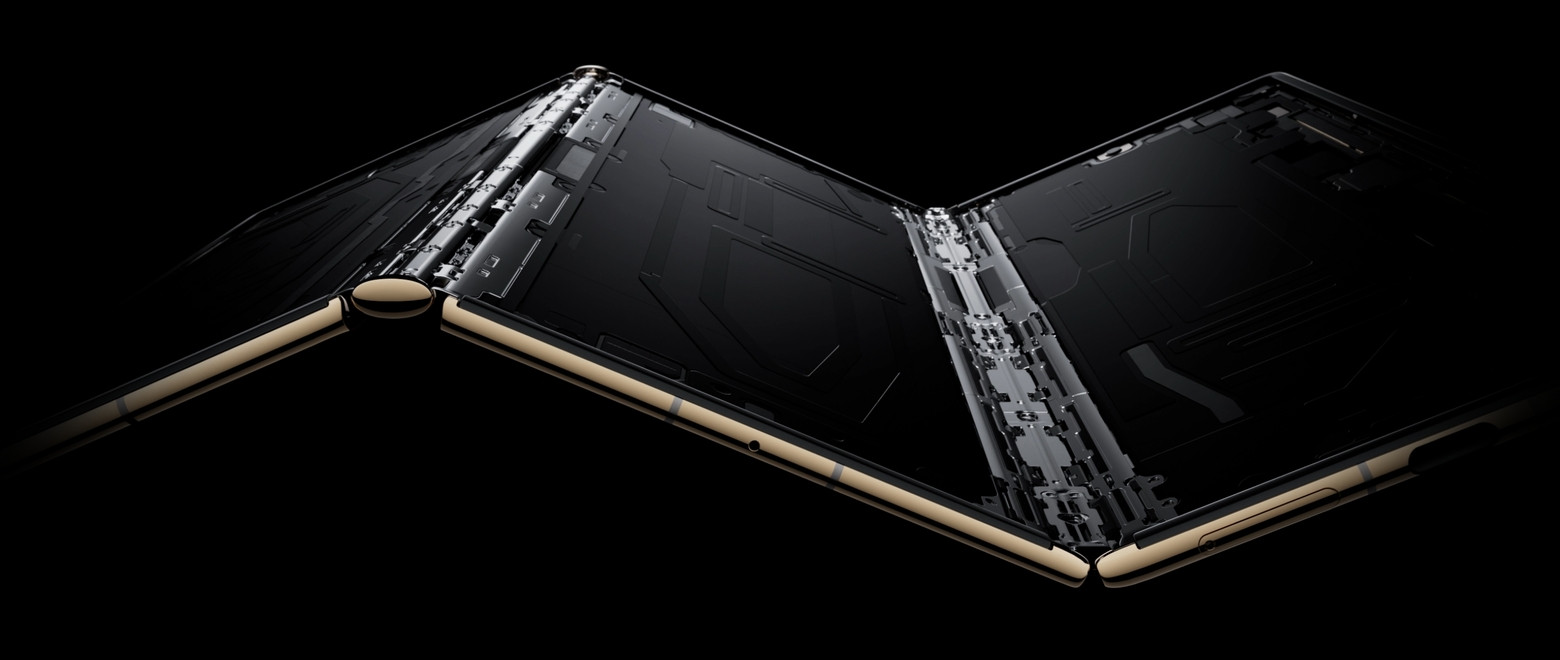
China’s Huawei has just announced a triple-folding smartphone, believed to the world’s first pocketable device to use such a system. The Mate XT concertinas out to a size equivalent to that of an iPad or similar tablet, at 10.2in, with the far-left-hand segment forming the regular phone-sized screen when closed up.

It’s a logical set-up, as it pairs the familiarity and convenience of a supersized 6.4in smartphone with the full-screen abilities of a tablet. In order to achieve the triple-fold, the company has devised an incredibly complex hinge mechanism, which will probably strike fear into the hearts of smartphone repair stores. The back of the phone is real leather, available in black or red, and the entire device stays remarkably thin, even when fully folded, at 12.8mm (versus the Pixel 9 Fold Pro’s 10.5mm), and light.


Complexity is not the only downside. Since 2019, Huawei has effectively been banned from using Google’s Android operating system and associated apps. Not only does this alienate huge swathes of (mostly Western consumers), it effectively takes the company’s devices out of competition when it comes to running both pioneering AI software and familiar, everyday apps. Huawei’s HarmonyOS isn’t a like-for-like replacement of Android, and even though the new phone promises some AI capabilities, the software is not as polished as the hardware.

This is a shame, because the latter exudes quality. Devices like the recent impressive MatePad Pro 13.2in tablet really encourage you to compromise and find workarounds for your favourite apps. However, time will tell if this costly tri-fold approach will ever be tackled by other companies. Right now, this is perhaps the most premium smartphone of all, with the top-of-the-line model (with 16GB of memory and 1TB of storage) coming in at CN¥23,999, or $3,390, or €3,050 euros).

Google’s latest Pixel 9 Fold Pro takes our top spot in the admittedly modest folding device category. Samsung and Honor are close behind, and the rumour mill continues to hint at some form of folding Apple product in the near future.

Remember the Razor Wars? Back in the 1990s, razor blade manufacturers were upping the number of blades on their disposable capsule systems, moving from two to three (the iconic Gillette Mach 3). In 2003, Schick-Wilkinson Sword parried with the Quattro, a four-blade shaving system. In 2006, Gillette struck back with the Fusion5 Razor. Others have since moved to six. Are smartphone screens destined to go the same way?
Huawei Mate XT, more information and available to buy at Consumer.Huawei.com







